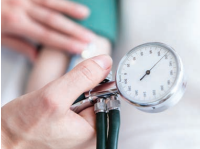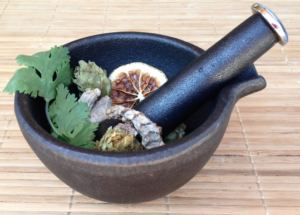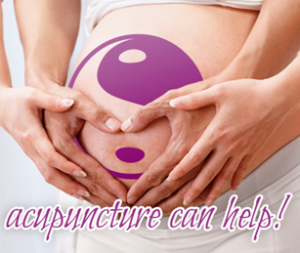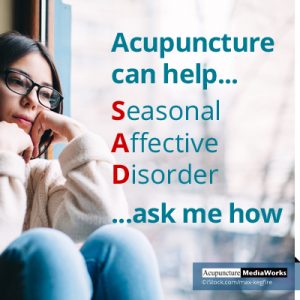Naturalizer Health
Now at two locations:
Clarington's Wellness Path
103 King St. East
Bowmanville, ON L1C 1N4
(see a map)Telma Grant Physio
234 King St. East
Bowmanville, ON L1C 1P5
(see a map)For information Call or Text Catheryne905-431-8217
- Sign up to receive news and updates and get my free report:“The Top 10 Reasons to Try Acupuncture”

-
Latest Articles:
- • The Best Ways to Protect Your Skin from the Sun This Summer •
- • Savoring Summer with Recipes Using the Best Summer Ingredients •
- • Top 5 Best Staycation Ideas for Summer •
AcuNews
Insomnia
The Importance of Sound Sleep
Two hundred years ago, people slept around 10 hours nightly, adjusting their wake-sleep hours to daylight. Today, roughly half of all adults experience sleepless nights or poor quality sleep. And the older a person is, the worse it can become.
Do you have difficulty falling or staying asleep?
Do you wake up during the night, or too early in the morning? Are you groggy upon arising in the morning? Answering yes to any of these questions is indicative of insomnia.
Sleep has an enormous impact on your overall health!
Anyone who lacks quality sleep on a regular basis will eventually suffer physical, mental and emotional health consequences. Poor sleep quality can affect brain health, cardiovascular health, immunity and weight. Symptoms include:
- Daytime fatigue, low energy
- Difficulty concentrating
- Headaches
- Dizziness
- Pain
- Digestive changes
- Moodiness, frustration.

There are natural solutions to sleeplessness.
Many scientific studies have shown that
Acupuncture significantly improved sleep quality and duration
when compared to no treatment or medication.
Acupuncture. Safe and effective.
How Acupuncture helps improve Sleep Quality:
- Acupuncture helps relax the body and mind, which can reduce insomnia.
- Stimulates the release of melatonin, a hormone that helps regulates sleep. Depending on the acupuncture points stimulated, other neurotransmitters are released to alleviate pain, inflammation, stress, anxiety, restlessness, and depression, which are often at the root of insomnia.
- It improves blood flow and circulation to the brain, which can improve sleep.
- It can stimulate the vagus nerve, which helps shift the whole body into a more relaxed zen state by triggering the parasympathetic nervous system.
NEW! Ask about No-Needle vagus nerve stimulation via the ear. - There is no set “protocol” of acupuncture points that resolves every case of insomnia. Instead, the body as a whole is addressed.
Natural Products to Alleviate Insomnia
NEW! Light Therapy Patches
A simple to use patch applied nightly to enhance sleep.
- The patch is non-transdermal, meaning it does not deliver drugs or chemicals into the body.
- It improves sleep by stimulating an acupuncture point using a combination of pressure and infrared energy.
- Our bodies constantly emit energy; the patches are made in such a way that they passively mirror a narrow band of that energy back into the body. Studies have shown that these light therapy patches improved the quality of sleep and the length of time slept in more than 70% of participants.
- Contact me for a free sample by Jan 31, 2024, or to place an order.
Professional Grade Supplements – Talk to me about your sleep issues. Different products for different needs such as difficulty falling asleep, jet lag, shift workers, delayed sleep phase syndrome, etc. Follow the link to my dispensary page and check out a curated selection of nine different supplements to choose from.
https://ca.fullscript.com/plans/cdahlke-insomnia. (You will need to create an account before you can access the dispensary… just follow the prompt.)
TCM Herbal products – Best suited for chronic or recurring insomnia.
A formula will be prescribed based on your TCM diagnosis.
Adrenal Glands and Fatigue
The adrenal glands are two tiny glands that sit on top of the kidneys. They are part of the overall endocrine system that produces hormones that regulate the body. The adrenal glands produce three very important hormones, adrenaline, cortisol and aldosterone. Adrenaline, also known as epinephrine, prepares the body to spring into action during stressful or life-threatening situations. Cortisol helps regulate metabolism and assists the body in responding to stress. And aldosterone helps control blood pressure. When the adrenal glands are not functioning properly, many diseases can develop.
 Adrenal fatigue is becoming increasingly common in Canada and other affluent nations. Excessive and unrelenting stress can deplete the adrenal glands over time.
Adrenal fatigue is becoming increasingly common in Canada and other affluent nations. Excessive and unrelenting stress can deplete the adrenal glands over time.
Stress plays a factor in how our bodies thrive and survive. Chronic stress can have serious health implications. Stress causes the adrenal glands to produce excess cortisol and adrenaline, which puts these glands in a constant state of “fight or flight.” This can lead to symptoms such as poor sleep, weight gain, digestive issues and chronic illnesses. Cortisol normally helps the body convert food into energy, while keeping the mind alert and also reducing inflammation. This is why many people who are diagnosed with fibromyalgia may also be clinically experiencing adrenal fatigue and chronic stress.
Traditional Chinese Medicine (TCM) provides some of the best tools available to battle chronic stress and adrenal fatigue. Acupuncture is one of the tools used. Studies have shown acupuncture treatments actually turn on or stimulate the relaxation areas of the nervous system, also known as the parasympathetic nervous system. When the parasympathetic nervous system is switched on, it helps to regulate the heart rate, improve digestion and balance sleep cycles. Most people experience deep relaxation and alertness during and after an acupuncture treatment. Some actually fall asleep!
 Herbal medicine is also an important tool in the TCM chest. Herbal medicine offers simple, safe, and amazingly effective remedies for many chronic problems. There are many herbal products that help with stress and adrenal fatigue. However, what may be appropriate for one person may not be suitable for another with similar symptoms. Many factors, based on the principles of TCM, are involved in choosing an effective remedy. To find what is right for you, talk to Catheryne, licensed Acupuncturist and Practitioner of TCM.
Herbal medicine is also an important tool in the TCM chest. Herbal medicine offers simple, safe, and amazingly effective remedies for many chronic problems. There are many herbal products that help with stress and adrenal fatigue. However, what may be appropriate for one person may not be suitable for another with similar symptoms. Many factors, based on the principles of TCM, are involved in choosing an effective remedy. To find what is right for you, talk to Catheryne, licensed Acupuncturist and Practitioner of TCM.
With all the excess stress placed on people today, it is quite feasible that nearly everybody deals with some sort of hormone imbalance and adrenal gland weakness. But this doesn’t have to be the case. Take advantage of what Acupuncture and Traditional Chinese Medicine has to offer you!
Fertility Issues
Infertility is an emotionally devastating condition that robs people of one of life’s deepest and most basic desires: the ability to create a family.
Thankfully, acupuncture and Chinese herbal therapy can help with a host of underlying conditions associated with infertility including PCOS, premature ovarian failure, endocrine health, and male factor infertility. It can also improve the success of IVF.
The causes of infertility are numerous. In Western nations, it is estimated that 12-20% of couples experience fertility challenges. Lifestyle may be a contributing factor: environmental pollution, poor nutrition including overconsumption of sugar, caffeine, and alcohol, sedentary lifestyle, weight problems, and stress.
Women may have problems with any part of her reproductive system due to shape, inflammation or disease. Hormonal imbalances may also cause an absence or irregularity of ovulation. Acupuncture and herbs are used to regulate different phases of the cycle and restore balance.
About 35% of fertility problems stem from male factors. Evidence suggests that acupuncture has an effect on sperm quality, production and quantity, without causing any negative changes in behaviour or sexual desire.
Every patient has different fertility treatment needs. Traditional Chinese Medicine (TCM) traces the symptoms of infertility back to the origin. Then the cause of a patient’s infertility can be addressed and a better environment to support pregnancy can be introduced. This improves success rates and reduces complications.
Studies have shown that acupuncture and TCM is a simple, non-invasive method that can help couples reach their natural fertility potential.
How Acupuncture and TCM help promote fertility:
- Your unique situation is diagnosed by tracing the symptoms back to the original cause. Treatment involves managing the symptoms and addressing the cause. Chinese herbs and acupuncture are used to restore Qi, the dynamic energy flow of the body.
- Generally improves good health and strengthens your constitution.
- Reduces anxiety and stress. Hormones secreted during stressful situations can significantly decrease fertility.
- Improves the quality of life in patients undergoing in vitro fertilization (IVF).
- Regulates the menstrual cycle.
- Increases blood flow to the uterus: the uterine environment becomes more hospitable, improving the chances of an ovum implanting on the uterus wall.
- Improves ovarian function. Normalize hormone and endocrine systems that regulate ovulation, especially in women with polycystic ovarian syndrome.
- Positively affects the hypothalamic-pituitary-ovarian axis, which plays a key role in fertility.
- Addresses male factor infertility.
Stress and Infertility
Stress hormones impact every organ and system in your body, particularly the reproductive system. Data shows that stress and infertility are inter-related. Studies have shown that strategies which reduce stress also improve outcomes for IVF.
A 2014 study published in the journal Human Reproduction showed that higher levels of stress, as measured by alpha-amylase (an enzyme found in the saliva) are associated with a longer time-to-pregnancy (TTP) and an increased risk of infertility[i]. Chronic stress can lead to decreased pelvic blood flow/fallopian tube movement, resulting in poor egg nourishment and transportation. Acupuncture has been shown to release anti-stress hormones and increase blood flow to the reproductive organs. Women trying to conceive naturally or through IVF benefit from acupuncture.
Steps to take to increase fertility:
- Evaluate your nutrition. Eat nutritious foods, at regular times, and never skip meals.
- Do not overindulge in sweets, caffeine, alcohol, and ice-cold drinks.
- Drugs, like marijuana, impinge sperm quality and motility.
- Maintain a regular, moderate exercise routine.
- Reduce stress at home and at work. Slow down and enjoy nature. Meditate, journal, practice yoga, etc. daily to relax.
- Be positive!
- Make an appointment to discover the why, according to TCM, you are having trouble conceiving.
TCM improves IVF outcomes
Scientific studies have demonstrated that there is a statistically significant improvement in pregnancy outcomes for patients undergoing IVF that has been integrated with TCM diagnosis and treatment.
For example, the British Medical Journal published research in 2008, which concluded that acupuncture is as a significant, clinically relevant adjunct to IVF, minimizing cramping, relaxing the uterus and increasing blood flow for the successful implantation of an embryo within the uterine lining[ii].
In a 2007 study, researchers found that acupuncture may improve the quality of life in patients undergoing in vitro fertilization (IVF). It was also found that women receiving acupuncture reported significantly less abdominal pain, other pain, nausea, and stress two hours after oocyte aspiration (egg collection) compared to women receiving conventional analgesia[iii].
Male Factor Infertility
Between 35-40% of fertility problems in couples stem from male conditions, such as a deficient sperm count, insufficient motility, or poor morphology of the sperm.
Evidence suggests that acupuncture can have an effect on sperm production and quality, without causing any negative changes in behavior or sexual desire. A recent trial published in Fertility and Sterility has shown just how effective acupuncture can be. Ten sessions of acupuncture (twice weekly for 5 weeks), led to increased motility, significant increases in the number of normal sperm and equally significant reductions in structural defects[iv].
Acupuncture and TCM provide
a safe, effective, drug-free, and natural approach to
treating infertility and
enjoying a healthy pregnancy.
[i] C.D. Lynch, R. Sundaram, J.M. Maisog, A.M. Sweeney, G.M. Buck Louis. Hum Reprod (2014) 29 (5): 1067-1075.
[ii] Manheimer, E., et. al. Effects of acupuncture on rates of pregnancy and live birth among women undergoing in vitro fertilization: systematic review and meta-analysis. British Medical Journal. February 2008;336:545-549.
[iii] Alternative Therapies, May/June 2007, Vol. 13 No.3.
[iv] Pei J, Strehler E, Noss U, et al. Quantitative evaluation of spermatozoa ultrastructure after acupuncture treatment for idiopathic male infertility. Fertility and Sterility July 2005;84(1):141-7.
Help for Headaches and Migraines
A big, old headache
crawls inside my forehead then
settles for the day.
– Haiku by Rachel Dickinson –
Almost everyone will experience an occasional headache. However, when they recur or disrupt normal day to day life, headaches may indicate a chronic imbalance that requires intervention.
Typically, we seek relief by reaching for drugs for fast pain relief. However, common headache medication does not address the root cause, and may cause unwanted side effects if taken for an extended time.
Acupuncture and Traditional Chinese Medicine (TCM)
is a safe, effective, drug-free way
to relieve chronic headache and migraine pain.
There are two phases of treatment: during a headache, and between episodes. Treatment during a headache aims to stop the pain immediately. Treatment between episodes addresses the underlying root cause, which changes the pattern, leading to long-term cessation of symptoms.
Common Causes of Headaches & Migraines
- Trigger points, musculoskeletal imbalances
- Trauma, post-concussion syndrome
- Stress and where it is held in the body
- Overwork, low energy
- Emotional factors, depression
- Diet, dehydration
- Imbalance of mouth and gut bacteria
- Changes in weather or barometric pressure
- Hormonal imbalances
- Prescription meds
- Strong smells
Migraines
More than 5% of Canadians have been diagnosed with migraines. Migraines are disabling, recurring headaches frequently on just one side of the head.
Some characteristics of chronic migraines include:
– Frequent, severe, pulsating headaches
– with stomach upset (nausea, vomiting)
– and sensitivity to light and sound.
– Duration of a few hours to several days.
– Frequent, severe, pulsating headaches
– with stomach upset (nausea, vomiting)
– and sensitivity to light and sound.
– Duration of a few hours to several days.
TCM addresses the complexities of migraines and headaches by addressing the Pattern of Disharmony.
Patterns of Disharmony
Clinically, a TCM practitioner relies on specific details to analyze what’s happening inside the body. Headaches and migraines are diagnosed according to onset time, location, pain characteristics and general constitution. Information about the headache helps establish the underlying Patterns of Disharmony and guides the subsequent treatment plan. The treatment plan always includes recommendations for self-care, and how to take control of the triggers.
How Acupuncture and TCM helps:
- Headaches can usually be relieved in one acupuncture session.
- Acupuncture reduces stress and anxiety immediately.
- Migraines and headaches can be complicated. Acupuncture and TCM address and resolve the underlying Pattern of Disharmony, bringing the body as a whole back into harmony.
- Clinical research has shown that acupuncture can be a valuable remedy for migraines and headaches.
- Findings in one study were summarized as follows: “If people have six days with migraine per month on average before starting treatment, this would be reduced to five days in people receiving only usual care, to four days in those receiving … a prophylactic drug, and to three and a half days in those receiving true acupuncture”. To read more: http://onlinelibrary.wiley.com/doi/10.1002/14651858.CD001218.pub3/full
What is Seasonal Affective Disorder (SAD)
What is Seasonal Affective Disorder (SAD)?
 Seasonal affective disorder is a type of depression that typically starts in early winter and is relieved by spring. Symptoms include:
Seasonal affective disorder is a type of depression that typically starts in early winter and is relieved by spring. Symptoms include:
- Irritability
- Headaches
- Extreme fatigue, lethargy and sleepiness
- Increased appetite
- Carbohydrate cravings
- Lack of concentration
- Decreased libido
No one knows exactly what causes SAD but most of the theories involve the effect of light on hormones. Serotonin, the “happy hormone,” affects mood, memory, energy levels, cravings, (especially for carbs), sleep habits, digestion, etc. Its levels increase with exposure to light. Serotonin levels drop with:
- Exposure to cold or darkness
- Chronic stress and multi-tasking
- Digestive disorders, dieting
- Lack of exercise, poor sleep.
Melatonin is a hormone derived from serotonin. Its level increases after darkness falls, helping us fall asleep, stay asleep, and the quality of sleep. During a northern winter, melatonin levels rise, and serotonin dips. This is thought to be one of the main causes of SAD.
Acupuncture and TCM can help SAD
Acupuncture has an immediate effect on the nervous system. It normalizes the symptoms of depression and anxiety and restores a calm state of mind.
Not everyone is affected by Seasonal Affective Disorder (SAD).
The question is: Why are some people affected and not others?
With TCM, the root cause can be determined, and steps taken
to reverse the energetic imbalances that lead to SAD.
Holistic Perspective
We are a part of, and interact with, the natural world. Autumn segues into winter as daylight decreases, temperatures drop and nature takes a rest. Life slows down in winter.
Traditional Chinese Medicine (TCM) takes a holistic view of the body and seasonal cycles. We understand that our bodies should slow down in winter and synchronize with nature. But modern life pressures us to be active, productive and creative at all times of the year, with no accommodation for the rhythms of nature.
The combination of cold dark days, with stressful work and holidays, contributes to exhaustion. Carbohydrate cravings are the body’s attempt to replenish depleted energy.
What you can do to ward off SAD
- Investigate light box therapy to increase light exposure.
- Talk to us about vitamins, supplements or herbs appropriate for your situation.
- Conserve your energy. Practice quiet, activities like yoga, walking or journalling.
- Eat warm, slow-cooked stews and soups.
- Add warm herbs and spices like garlic, ginger, black pepper, cloves and basil to your foods.
- Limit cold drinks and raw vegetables.
- Rebuild your energy to prepare for spring.
SAD can be relieved. Get a seasonal acupuncture treatment with Catheryne and discuss treatment options.

